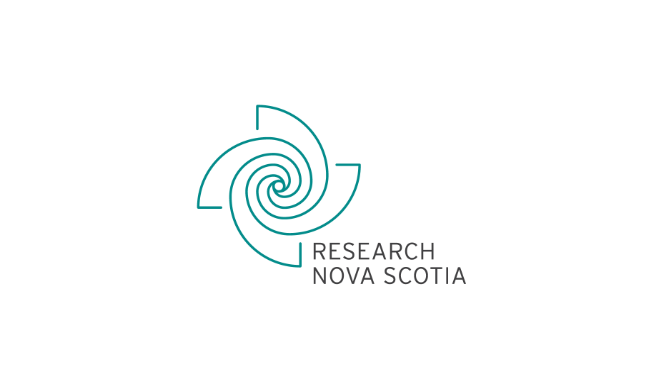Organizations:
People:
Topics:
Working with the “right people” is key to startup success, say natural products entrepreneurs
Mark LoweyApril 24, 2024
Entrepreneurs with very early-stage companies need a solid business plan, some investment and a marketable product if they hope to succeed.
Startup founders supported by Natural Products Canada (NPC) told Research Money there’s also one key ingredient necessary to bring all the other pieces together to propel a new company forward: the right people.
 “Investors shouldn’t get a ticket to the table just because they invested money. You really want the right group to be involved,” said Hamlet Abousi (photo at right), co-founder and CEO of Vancouver-based NovoBind, which is developing safer antimicrobial alternatives to antibiotics used in livestock production.
“Investors shouldn’t get a ticket to the table just because they invested money. You really want the right group to be involved,” said Hamlet Abousi (photo at right), co-founder and CEO of Vancouver-based NovoBind, which is developing safer antimicrobial alternatives to antibiotics used in livestock production.
Early-stage or angel investors can sometimes forget there’s a lot of knowledge and expertise – and etiquette – required to maintain respect around a table at a startup company, he said. Fledgling entrepreneurs need to be able to sit and work with brilliant entrepreneurs and other experts who “really exemplify leadership in that space,” he added.
Through NPC’s support, “we learn from different experts who absolutely deserve respect and a seat at the table,” Abousi said. “What NPC has done is go get that expertise where you really want to listen.”
NPC’s team also will roll up their sleeves and “get in there and knock on doors with you to get the right set of candidates for a board selection,” he said. Or they’ll take your three-page writeup about your business and “turn it into something good. And do that with a collaborative approach,” Abousi said.
 Nivatha Balendra (photo at left), founder and CEO of Laval, Que.-based Dispersa, said after being connected with NPC about four years ago, her company put together its first funding application to NPC for a pilot technology-development program.
Nivatha Balendra (photo at left), founder and CEO of Laval, Que.-based Dispersa, said after being connected with NPC about four years ago, her company put together its first funding application to NPC for a pilot technology-development program.
Dispersa has developed biosurfactants that are fully derived from food waste. The company’s household, industrial and institutional cleaning products are safer, non-toxic alternatives to cleaning products made with surfactants chemically derived from polymer petroleum bases.
Getting NPC’s support early on “was very instrumental not only in having the non-dilutive funding that is really critical for early-stage startups like us who are pre-revenue at that time, but to then validate our technology,” Balendra said.
Funding from NPC helped Dispersa take its technology from the laboratory bench-scale to being able to produce enough product for testing with clients and to obtain market validation, she said.
NPC’s initial non-dilutive investment also helped attract matching follow-on private investment in Dispersa’s first pre-seed round of funding last year, Balendra said.
“Moving along on those non-dilutive milestones of securing funding also helps build that conviction for private investors to look at who’s around the table as we’re closing that round.”
However, more than funding, NPC’s team also helped Dispersa secure strategic partnerships and potential customers for the company’s products, Balendra noted. “Having that link with corporations is really great for us, it means we’re able to find clients from an early stage to validate and test our ingredients and technology as we’re scaling.”
“NPC is a cluster, a community of natural product champions that includes end-users who are really eager to adopt technologies like ours and others in NPC’s portfolio,” she said.
NPC also provides networking and other opportunities that enable startups to share what they’re working on.
“I know it’s not every organization that does that, but I feel NPC and the folks we’re regularly in touch with are always keeping everyone at top of mind on how we can really let our companies shine through and bring them to the front and centre stage,” Balendra said.
“That’s always really appreciated, because being able to increase visibility on what we’re working on is helpful for us not only in securing clients but securing funding.”
NPC is not your “traditional” investor
 For Jack MacDonald (photo at right), co-founder (with chemical engineer David Griffin) of Halifax-based Infusd Nutrition, the people within NPC are at the heart of what the organization offers to startups in the natural products sector – especially NPC’s regional representatives.
For Jack MacDonald (photo at right), co-founder (with chemical engineer David Griffin) of Halifax-based Infusd Nutrition, the people within NPC are at the heart of what the organization offers to startups in the natural products sector – especially NPC’s regional representatives.
Infusd has developed technology that allows for the solubility in water of numerous fat soluble and insoluble nutrients, such as infusing healthy omega-3 fatty acids into beverage products.
MacDonald praised Barbara Campell, regional director for NPC-Atlantic Canada, who works with Infusd. “I honestly think of her as an extension of our team. She has been so amazing for us.”
Campbell has invited Infusd to networking events, including to speak at networking events, and has connected the company with investors, strategic partners and customers, MacDonald said. “The one-on-one support that we’ve gotten from everybody in the organization, but especially our regional rep, has just been huge for us.”
NPC’s early-stage investment gave Infused credibility and led to subsequent private financing, he noted. “From an actual dollars and cents perspective, it’s allowed us to further our research goals.”
 NPC, which was founded on the believe that some of the solutions to the world’s greatest problems can be found in nature, isn’t a traditional startup investor, said Shelley King (photo at right), CEO of Natural Products Canada.
NPC, which was founded on the believe that some of the solutions to the world’s greatest problems can be found in nature, isn’t a traditional startup investor, said Shelley King (photo at right), CEO of Natural Products Canada.
NPC acts like a strategic angel investor for high-potential, early-stage startups developing naturally-derived products and technologies to tackle major issues such as climate change, food production, and animal and human health and nutrition.
“We look at the whole company, and that means the technology, the team, the market traction – all of the aspects that can make multi-million-dollars that can create a return on their investment,” King said. “Return on investment for us is really about jobs and increasing the socio-economic benefits for Canadians.”
But one of the differences between NPC and traditional early-stage investors is NPC’s willingness to take a risk on very early-stage companies, and their products and technologies, that a standard VC investor likely considers too risky.
“We de-risk those opportunities and help the companies become more capital-ready, and then we introduce them to investors through our network,” King said.
The other big difference compared with traditional investors is that NPC doesn’t just provide funding.
“We help companies through a strategic combination of advice and connections and capital,” King said. “We have an incredible network across the country and outside the country, so that we can connect the companies to the resources that they need at the right time in their development.”
NPC currently has approximately $12.5 million to invest and has invested about half of that. The organization offers a non-diluted investment of up to $350,000 per company, and now has more than 60 companies in its portfolio.
“Every dollar that we have invested on behalf of the Canadian government helps these companies raise an additional $64,” King noted.
She said NPC’s team does a lot of due diligence on each company before NPC decides whether to invest in it and introduce the company to other investors, experts or consultants.
NPC’s cross-country network is vital to the way NPC helps companies, she said. “It’s extremely important because it takes a village to raise a company.”
“We just don’t do a capital injection and leave. We work with the company before they get money from us and afterwards,” King said. “So it’s really a long-term relationship and we truly care about making these companies successful.”
King said NPC also tries to work “with the best of the best” and bring them into NPC’s ecosystem in Canada.
NPC-supported companies are pioneering new technologies
Dispersa, for example, makes natural biosurfactants that are safe for people and the environment, but that also perform as well and are as effective as conventional chemical- and petroleum-based surfactants.
Balendra said her company is currently operating in the cleaning products sector, selling business-to-business to a cleaning products manufacturer that’s making the end-user products such as hand soap and cleaner-detergent.
“Our whole goal is how can we create more sustainable end-products and work together with brands to create those safe formulations,” she said.
MacDonald and his Infusd Nutrition company has moved from startup to scale-up within the last year, with its focus on soluble and insoluble active ingredients.
“We’re working on solutions in the natural flavour world and in the natural colour world, in the natural beauty segment, as well as across the nutraceutical space,” he said.
Omega-3 fish oil supplements, for example, are typically available as large capsules that are difficult for some adults and many children to swallow. MacDonald said his company’s technology can infuse omega-3 into beverages in efficacious amounts, without any fishy taste, and the omega-3 remaining stable in the beverage for as long as its shelf life.
Instead of a sports drink only having sugars and some electrolytes, he said, “it could actually have some hard-hitting, science-backed ingredients with functional benefits. There’s a whole list of products that we can now put into beverages.”
Infusd is in active discussions with the big beverage makers, as well as all of the large ingredient processors and extractors, MacDonald said.
Abousi with his NovaBind firm is tackling one of the most serious challenges facing society – antibiotic resistance.
About 80 per cent of antibiotics are currently used in animal food production, yet many of these drugs have become or are becoming resistant to infectious diseases, which makes them less effective.
“We want to reduce the use of existing antibiotics and give farmers a way to reduce the $25-billion loss and waste they experience annually for a handful of diseases,” Abousi said.
NovoBind’s technology creates “single domain antibodies” that can be economically produced using well-characterized and safe host organisms such as yeast and bacteria, or delivered safely via probiotics that produce and secrete the antibodies in the gastrointestinal tract of the animal.
NovoBind’s technology can be incorporated into feed, feed additives, water, or egg-based applications. Once in the environment, the antibodies are nontoxic, biodegraded and don’t have a negative impact on the animal, farm or environment.
“We provide a natural product that’s mimicked off of nature and provides passive immunity in the gut,” Abousi said.
NovoBind, which plans to license its intellectual property and access to its technology, is getting very close to securing some significant partnerships, he said.
Crucial for Canada to invest in early-stage companies
The federal government has been a partner and investor in Natural Products Canada since its inception in 2016, relying on the organization to help advance Canada’s sustainable food, agri-food and bioeconomies.
NPC supports Canada’s Natural Product Innovation Cluster, a highly diverse and connected network of startups and SMEs, research institutes, investors, corporations and others involved in the research, development and commercialization of innovative natural products and technologies.
Strategic partnerships include NPC’s node partners (the Prince Edward Island BioAlliance, Institute of Nutrition and Functional Food, University of Guelph, Bioscience Association Manitoba, Ag-West Bio, and BioAlberta), as well as many other provincial, regional and international governments, organizations, investors and corporations.
Given their positive experiences with NPC, the three startup founders who spoke to Research Money praised the government’s overall programs to support innovation and startups.
Abousi said he’d love to see NPC have a billion-dollar VC fund, which he said is something that Norway (with multiple sustainability VC funds) and Belgium’s sustainability funds offer.
“We don’t have enough large, significant lead investors that could essentially compete and drive up valuations and create a wealth base,” he said.
Canada needs the leadership to champion deserving Canadian companies, to say “why not have them be premium companies, premium valuation, over-capitalized – versus barely making it through,” Abousi said.
King said there is more that all Canadians can do – not just governments – to support and grow innovative companies in the country. “We really need to challenge companies to be best-in-class and then provide them with the resources or the support to get them to be best-in-class as quickly as possible.”
Canada is a relatively small country and is competing with much larger and wealthier nations, she noted. “We need to have a national framework of some sort that actually brings the provinces and the territories together and to work together, not work against each other in silos.”
“We need a change in how we think, because we have such rich resources already to potentially be globally competitive But we need to take risks on early-stage companies,” King said.
“Because if you don’t take risks on early stage, by the time they are de-risked they’re gone somewhere else and we have missed an opportunity as a country.”
R$
Events For Leaders in
Science, Tech, Innovation, and Policy
Discuss and learn from those in the know at our virtual and in-person events.
See Upcoming Events
You have 1 free article remaining.
Don't miss out - start your free trial today.
Start your FREE trial Already a member? Log in
By using this website, you agree to our use of cookies. We use cookies to provide you with a great experience and to help our website run effectively in accordance with our Privacy Policy and Terms of Service.


.png)
